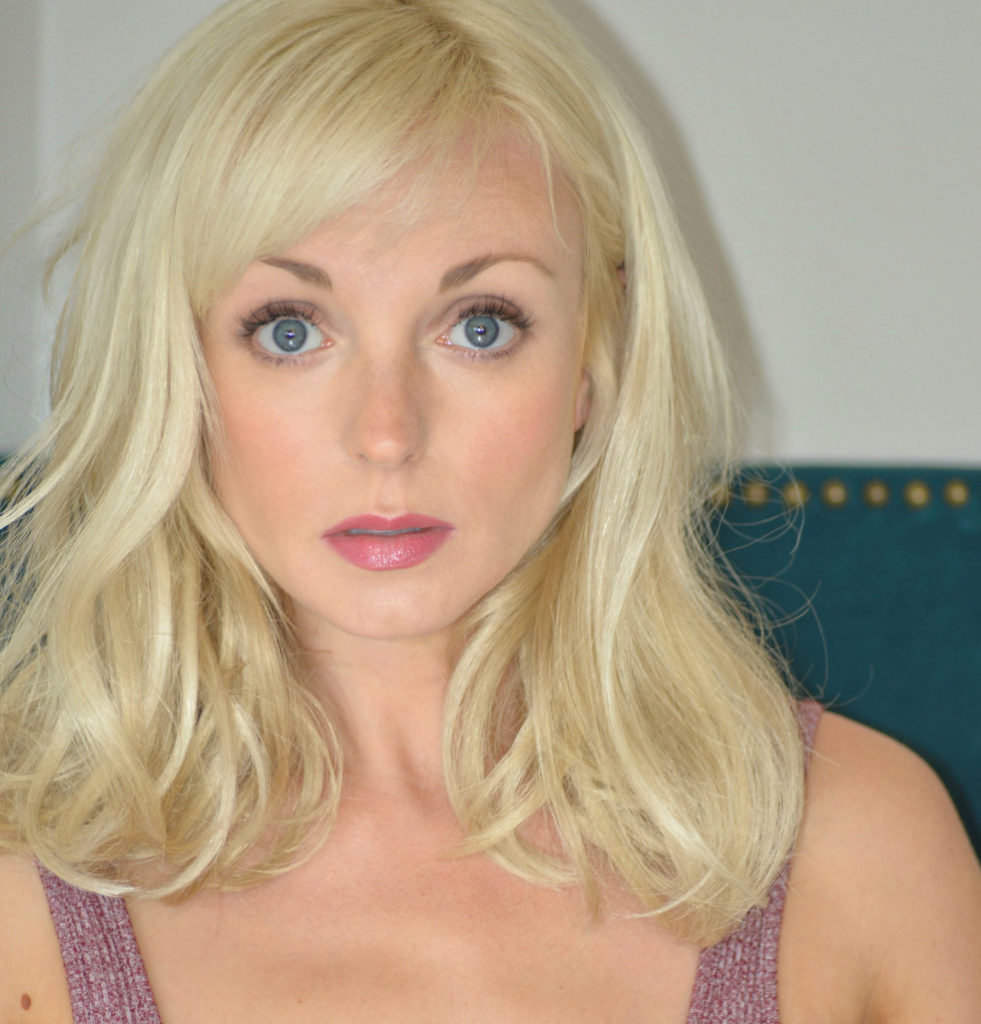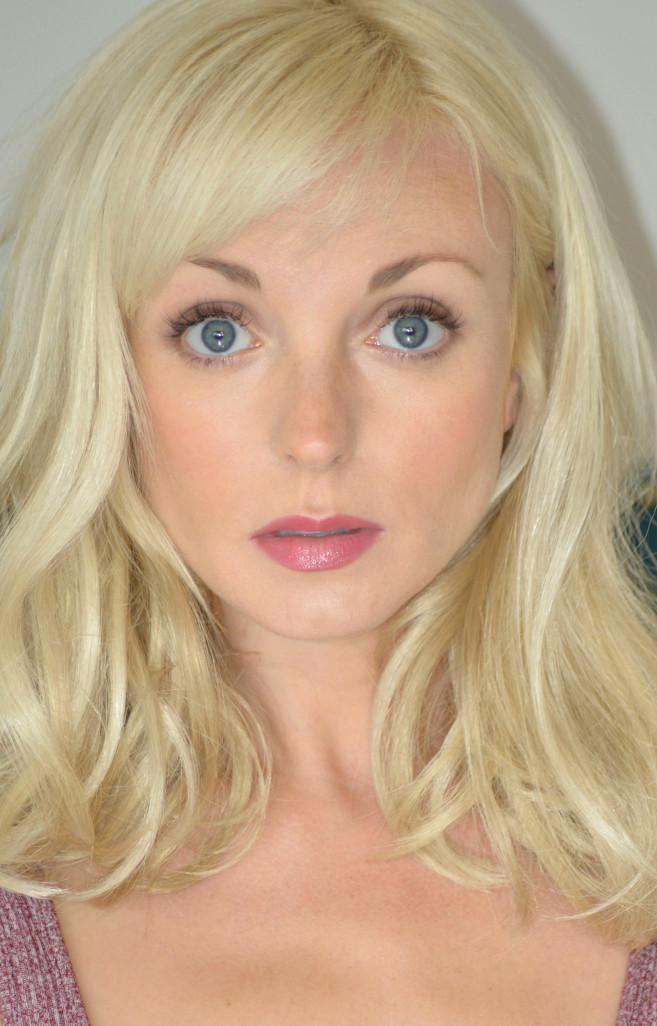
Helen George talks about her current role starring as Countess Rachel Sangalletti in a new production of Daphne du Maurier’s My Cousin Rachel which is currently on tour.
What are you most looking forward to about playing Countess Rachel Sangalletti?
It’s a really different role for me. It feels like a transition in a way. She’s a woman in her mid-30s and in the play she refers to herself as an old lady, which of course she would have been in Victorian times. She’s a character who really knows herself. There’s a vulnerability because of her life experiences but by and large she’s strong as hell. What’s brilliant about Daphne du Maurier’s novel, which Joseph O’Connor reflects in his script so well, is that Rachel really has at certain points a male emotion to her. She almost thinks like a man and she knows what she needs out of life and how to get it – and she will, by god, get it. She’s fierce as hell. I can’t wait to play her!
Can you relate to her in any way?
I’m self-employed and there’s something in self-employed that means you just have to keep going, keep going and keep going until you’re OK. I think that’s what you get with Rachel as well. She’s a woman so in that era she can’t have a career, she’s married into money, she was married at a very young age to an elderly man and her way of surviving is through marriage. She likes to spend her money and she’s profligate, so she’s a lot of fun to play. She’s Anglo-Italian so there’s definitely a challenge there in finding a different physicality and a different way that she holds herself. She’s a feminist, she really understands women, she understands men, and she’s very knowledgeable. There’s a strength to her that I try and emulate but maybe don’t always succeed in doing. [Laughs] But I hope I’m not as scary as her.
Daphne du Maurier first published the novel in 1951 and set it in Victorian times. Why do you think the story has endured and are there themes that make it timely today?
I think in some ways it’s timeless because Rachel is really a character from the future. She comes with future ideals. She comes into this big, old estate in Cornwall and says ‘Actually, I’m not gonna do things your way’. Isn’t that what we hear all the time with Meghan Markle and the Royal Family? This is a timeless tale that really applies. She knows what she should be as a woman in her life, which I think does still apply, but she’s refusing to have those ideals. She’s refusing to fit into her role, which we all have in life. There’s a definite gender fight to this story and also the idea of the Other. She’s an Italian who comes over to Victorian England where there were few, if no, foreigners. These people in this village in Cornwall wouldn’t have met Italians before so there’s the fear of the unknown and how that reflects today with Brexit and the referendum and everything. It’s the idea of this stranger coming into the house and the fear of what’s coming in, then it’s ‘OK, she’s alright actually’. The feminist aspect seems timely too because feminism is fashionable at the moment in a way. She’s not a Victorian heroine, she’s not Jane Austen, she’s not quiet – she’s calculated and her emotions are on the male side. She’ll give as good as she gets. If she were a man she’d be one of the most powerful businessmen of her time but because she’s been born in the shackles of this female body it hinders her.
As well as being adapted for television and radio, My Cousin Rachel has been turned into a film twice, in 1952 and 2017. Have you avoided watching the movie versions?
Yes I have actually. I read the book because it serves as a background study to the play but I didn’t think it was helpful to watch someone else’s performance. I love Rachel Weisz and I did watch some of the 1952 version, which was interesting, but I think you just have to find the character yourself. You’ve got to read the book and get an image of her in your head. That’s the most important thing, I think.
Why do you feel theatregoers love a good psychological thriller?
It’s about escapism. The news is pretty diabolical at the moment and it’s always fun to escape from that with a gripping mystery on stage. There’s also a gothic element to this, a gothic romance in the ilk of all those Wilke Collins novels and stuff. That’s something I think people will always enjoy, watching that lush romantic era on stage. Our set designer is incredible and the costumes are very lush so it’s a feast for the eyes.
Have you worked with your co-stars Simon Shepherd and Jack Holden before?
No I haven’t and it’s really exciting. It feels like I’ve got new friends, which [laughs] probably makes me sound really sad. They’re both so lovely. I grew up watching Peak Practice and my mum was a massive fan so when Simon Shepherd walked in the room I got a bit excited because he was a big deal in our house. And Jack is so fantastic at playing Philip. He brings a naivety and the youth and vulnerability that Philip needs. We’re having lots of fun. It’s a lovely cast.
Likewise have you worked with director Anthony Banks before and how is the collaboration?
I’ve worked with him a couple of times, which is lovely. He’s fantastic and really collaborative. We did After Miss Julie together when I first left Strictly a few years ago and it’s nice to come back and work together after a few years apart, as it were. We’re both a bit older and a bit more experienced. It feels really good and he’s got some fantastic ideas for this play. Our other collaboration, before After Miss Julie, was a thing called The Hotel Plays at the Langham Hotel. We did three short Tennessee Williams plays, which were all 15 minutes long, set in bedrooms in the Langham Hotel so the audience would come into the bedroom, watch for 15 minutes, then go into the next room. It was really exciting and a fantastically brave thing to do. We were just in a bedroom doing plays so there was a load of people in the bedroom with us watching us act. It was a really surreal experience but a fantastic idea and Anthony and myself first bonded doing that play together.
What have been your career highlights to date?
Trixie [in Call The Midwife] has meant so much to me. I’ve played her for nine years now, which is a massively long time to play a character so she’ll always have a strong hold on my heart. I really feel I’m ready to play Rachel and After Miss Julie was a fantastic experience because [laughs] she’s just such a mess and it was such a messy thing to do. I was fresh off the back of Strictly and there was lots going on in my personal life so it sort of encompassed that whole weird chapter of my life – and it is such a weird, strange play. I was massively fond of her but she was also a dangerous character.
How is it being back in theatre after filming Call The Midwife and what do you most enjoy about stage work?
It’s fab. It’s always refreshing. I’m very lucky; I get to do Midwife for six months of the year, then I get six months off. Sometimes I get to do a play, sometimes I get to do a film and sometimes I just have a rest. It’s lovely being back in the rehearsal room. When we’re on the TV set we have time to rehearse but it’s not to the depth you get in theatre. With Midwife there’s so many of us so we are a company but often you’ll go for days without seeing each other, whereas I’m really loving being with everyone in rehearsals for the play. It’s the most terrifying but also the most wonderful part of doing a job. Experiencing a different character for a few months is also good for the craft, I think. I take something back to filming when I’ve played someone else – a different perception. It benefits my work on screen on Call The Midwife to go off and play other people and shake her off for a bit.
What’s the one thing you couldn’t be on the road without?
[Laughs] I’m quite high-maintenance so I don’t travel light. And my daughter will be coming to some of the venues. She won’t be able to come to all of them but she will come to some, which will be fantastic and also interesting because I’ve not done theatre since I had a child. The last time I was on stage I was actually pregnant with her in Love in Idleness at the Menier Chocolate Factory.
Do you have any pre- or post-show rituals?
Post-show is going to the pub to shake the character off. Pre-show I do think music helps and to prepare for a character like Rachel I can imagine myself listening to Maria Callas on repeat in my dressing room. I also like to buy perfume for the character I’m playing. I enjoy the sensory experience of what she would smell like and especially for this character because she’s all about her herbs and she’s really into her gifts of nature. I could imagine her scent being quite exotic for that era. And because she’s Anglo-Italian I couldn’t be without the wig. I’m having a very dark wig and I think as soon as that goes on there’s a big transformation.


